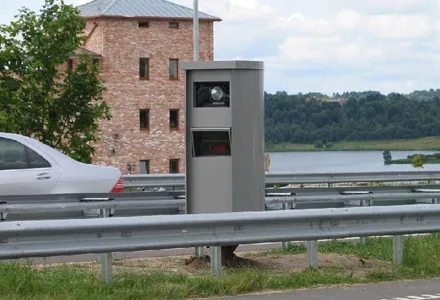Police enforcement actions in Europe against trucks and buses have helped boost road safety and arrest criminals. One week long operation resulted in 4,400 trucks being removed from the road network due to dangerous defects. The action followed checks of more than 137,000 trucks across 26 countries and was co-ordinated by TISPOL, the European Traffic Police Network. The operation saw police carrying out a wide range of safety inspections that focused on speeding, alcohol, drugs, seatbelt use, tachograph inf
April 8, 2014
Read time: 2 mins
Police enforcement actions in Europe against trucks and buses have helped boost road safety and arrest criminals. One week long operation resulted in 4,400 trucks being removed from the road network due to dangerous defects. The action followed checks of more than 137,000 trucks across 26 countries and was co-ordinated by 4753 TISPOL, the European Traffic Police Network. The operation saw police carrying out a wide range of safety inspections that focused on speeding, alcohol, drugs, seatbelt use, tachograph infringements, excess weight, dangerous loading and document offences. In all 51,187 offences were detected including 379 drivers committing alcohol and drug offences, 9,269 exceeding the speed limit, 8,102 instances of drivers exceeding their maximum permitted time at the wheel, 2,391 overweight trucks and 1,146 insecure loads. Of the 4,400 trucks prohibited from continuing their journeys, most were because of technical defects on the vehicles. Stopping drivers provides officers with the opportunity to make other appropriate safety and security checks and police also detected and dealt with offences connected with irregular immigration and human trafficking, possession of drugs, firearms, stolen goods and other crimes.
In a separate action checking buses travelling through 18 countries, more than 36,000 vehicles were controlled, resulting in the detection of 6,505 traffic offences and a further 77 crimes. The offences included 825 cases of exceeding the speed limit, 14 drink-drive detections, 1,113 seatbelt offences and 759 contraventions of tachograph regulations. Included in the total of 77 crimes were 21 illegal immigration and human trafficking offences, 11 drug detections and 45 other crimes.
Another combined police action was operation Trivium II, involving officers from Lithuania, Poland, Romania and the UK. This action included members of the UK’s HMRC, the National Crime Agency (NCA) and the Gangmasters Licensing Authority (GLA). During the week, 2,689 vehicles were stopped, 367 vehicles were seized and 197 people were arrested. In addition, police received 1,049 intelligence submissions and 1,624 enforcement activities were recorded overall.
In a separate action checking buses travelling through 18 countries, more than 36,000 vehicles were controlled, resulting in the detection of 6,505 traffic offences and a further 77 crimes. The offences included 825 cases of exceeding the speed limit, 14 drink-drive detections, 1,113 seatbelt offences and 759 contraventions of tachograph regulations. Included in the total of 77 crimes were 21 illegal immigration and human trafficking offences, 11 drug detections and 45 other crimes.
Another combined police action was operation Trivium II, involving officers from Lithuania, Poland, Romania and the UK. This action included members of the UK’s HMRC, the National Crime Agency (NCA) and the Gangmasters Licensing Authority (GLA). During the week, 2,689 vehicles were stopped, 367 vehicles were seized and 197 people were arrested. In addition, police received 1,049 intelligence submissions and 1,624 enforcement activities were recorded overall.






